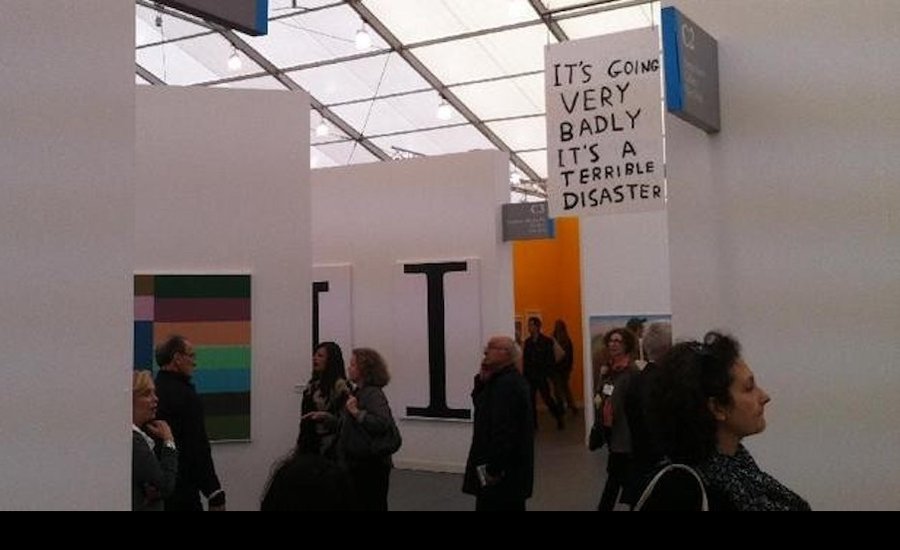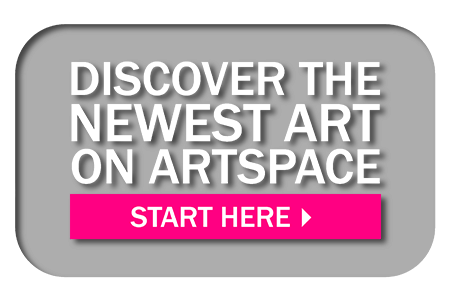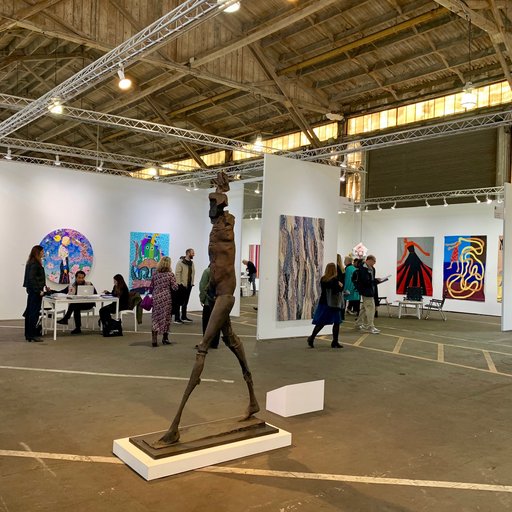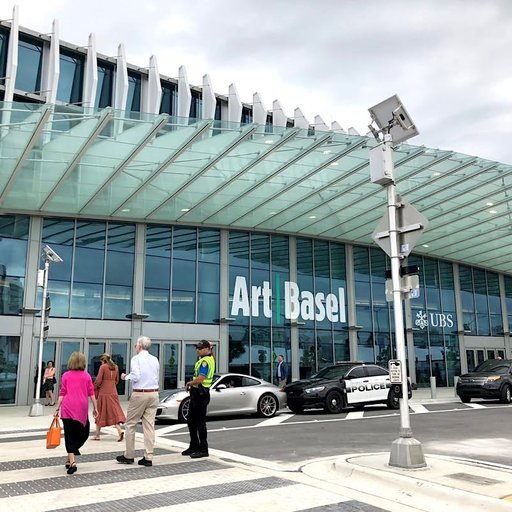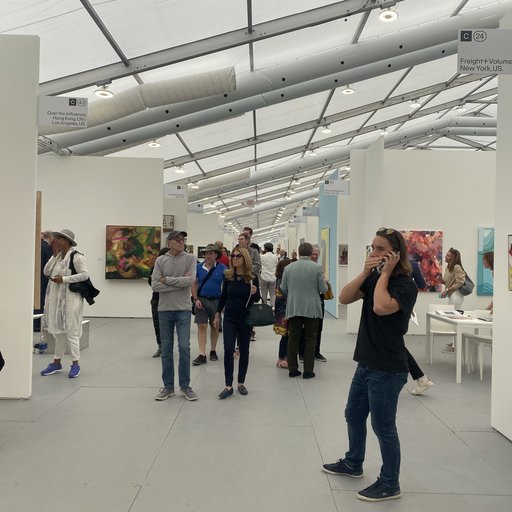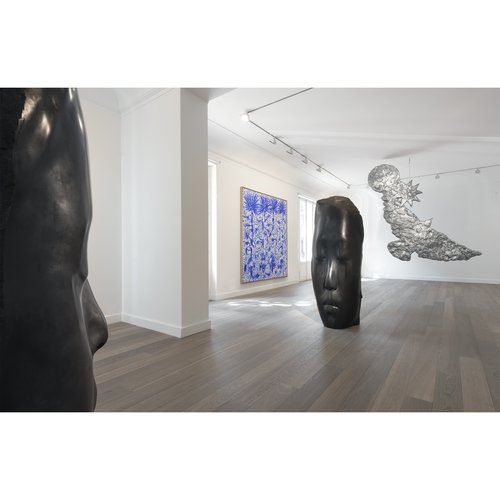Art fairs, in addition to being fast-paced zones of high-calibre art commerce, are also social occasions—and, as such, are places where a million different faux pas are possible. But if you're new to the art world, or if you're an art-world veteran who's simply too wealthy, powerful, or oblivious to comply with behavioral norms, how are you supposed to navigate this minefield? To solve this art-fair etiquette dilemma, we've reached out to an array of art professionals—from dealers and collectors to artists and journalists—to ask them to vent their grievances, gripes, and bêtes noires regarding outrageous collector behavior, looky-loos, pesky journalists, and other malefactors. What follows is their advice, and we suggest you take it.
"Don't pitch to any galleries. Don't stand around talking to yourself. Don't give artists advice on how to make their work better. Don't say my 5-year-old can do that. And don't wear booty shorts!" – Hank Willis Thomas, artist, @hankwthomas
"I'm the first one to break this rule because I go for glam over pain, but high heels at fairs really kill." — Maria Brito, art advisor to P. Diddy and Gwyneth Paltrow
"If possible, do avoid stepping into or onto the work. While accidents do happen, following this basic piece of art-fair etiquette will make life a little bit easier for everyone. Of course, there are some exceptions to this rule—if in doubt, ask. There are other forms of rudeness. In Miami one year, I arrived at the booth to find a colleague absolutely incredulous about the behavior of a rather flamboyant lady who had decided to take a business card from the desk and use it as a tooth pick, to dislodge something from between her teeth. To make matters worse, she then attempted to put the business card back. By all accounts she won't be making the same mistake again." — Chrissie Shearman, art advisor
"Don't talk about how terrible a work of art is unless you know what the artist looks like and have determined that he or she is not within a four-booth radius. Do you also know what the artist's husband/mother/surly tween daughter/WWII-veteran grandfather looks like? Probably best to avoid talking about how much any art sucks, then. Tweet about it, if you must." — Emma Allen, New Yorker art writer
"If you're an artist, do not give dealers your CD/portfolio, or try to talk to them about your work." — Allegra LaViola, founder, Allegra LaViola Gallery
"To artists, I love you and want you to do well, so my advice is: never take your portfolio to an art fair in hopes of handing it off to a curator or gallerists. Everyone is experiencing sensory overload, so it is a very bad idea to make a cold call in that situation." — Eric Shiner, senior vice president, Sotheby's
"Do not think the 'VIP' on a VIP card necessarily means a 'Very Important Person.' It can as easily mean 'Vague and Ill-Defined Person,' 'Vastly Implausible Person,' or a whole lot of other things. Such as 'Very Inquisitive Presshound. — Anthony Haden-Guest, art journalist and author
"No artist, ad representative, or service provider should hand out business cards at art fairs. If you want to talk to me come by the gallery—I am there every day." – Max Levai, Marlborough Chelsea dealer
"I get a bee in my bonnet when people complain about how commercial art fairs have become, how they're whores to filthy lucre. It's a commercial art-fair people, not a biennale!" — Horacio Silva, group editor-in-chief, Crane.tv
"Don't wear a fanny pack or a scarf." — Adam Fields, founder of Arta
"Don't worry so much about what's most popular, or sells for the most money. Focus on what you like—and then buy it. And in all the madness… don't forget to call your mother!" — Cornell DeWitt, art consultant
"At Art Basel Miami Beach 2008 we showed a video by Mickalene Thomas with a naked woman singing 'Hey Mickey' by Toni Basel. I was repeatedly given the up and down and asked if I was the woman in the video. Sure, she was hot and I could have taken it as a compliment, but mostly it just made me feel violated. So, don't do that. Also, don't ask a dealer if they made the work in the booth. Don't touch the art! And, please, don't take every business card on the table." – Carla Camacho, partner, Lehmann Maupin Gallery
"People should never plan to find an outlet to charge any devices." — Dan Tanzilli, founder at Third Eye Collective pr
People shouldn't talk on their cell phones so much. And they should look where they're going when they walk!" — Andrea Blanch, photographer and artist
"If you're a journalist, don't trust dealers. No dealer has ever told the truth to a journalist about what they have sold and for how much at a fair. As for collectors, don't try to sell your own stuff to dealers in their booth on opening day; don't put stuff on hold and then evaporate; don't buy art and then renege after the fair. All it takes is a nod to buy something, so people should respect the sanctity of the verbal agreement. Lastly, for dealers, just try and sell something after the event that you previously stated was sold at the fair." — Kenny Schachter, curator, collector, dealer
"Don't go to an art fair without some kind of breakfast bar in your bag! You will either end up poor (having spent $18 on a sandwich) or hungry and grumpy." — Julia Halperin, Art Newspaper reporter
"Artists shouldn't try to talk about their work to people they don't know! I learned this the hard way early on. The gallerist doesn't want to be rude, but I promise they don't want to talk to an artist they've never met before who's trying to market themselves." — Jeremy Kost, artist
"Speaking from personal experience, no one should believe for one second that they'll be able to find a strong internet connection." — Susi Kenna, Fitz & Co.
"If you're a journalist, don't interrupt a dealer when he's talking to a collector." — Adam Abdalla, founder of Cultural Counsel pr
"Never take a call in someone else's booth, unless it's about their artworks. Never compose texts in someone else's booth, unless it's their stand. On opening day, if you're not buying, say: 'Great stand. Good luck!' And keep moving. Don't reserve more pieces than your budget can possibly cover. That's obnoxious. Don't tell someone you 'looooove' their stand unless you've seen it, lest you get asked what you loved most—or find out they're not even in the fair. Also, it's not a runway, people. Don't wear a crazy getup. Seriously. Eva and Adele get first-mover exception—everyone else is just a lost costume raver. Also: Find some other background for your Instagram selfies. Lastly, got a discount? Be discreet." — An anonymous art-fair titan
"Don't ask me if I'm the artist, and don't ask me to put a hold on the work unless you really are interested. Also, why should I give you a dealer discount unless I know you? And don't stand in my booth talking to someone about something else—you're just taking up space." — Frederick Janka, director of development at Museum of Contemporary Art Santa Barbara
"Here are a few questions you should never ask at an art fair, all based on real-life experience: 'Is the art going to be cheaper on Sunday?' 'Are you and all of your artists gay?' 'I’m a member of the local museum, doesn’t this mean that the fair is free for me?' 'Why am I not a VIP?' Also, don't bring enormous duffel bags, steamer trunks, or grocery shopping carts to be stored in the baggage check. Don't bring tons of your own artwork to the fair and display it at locations you deem appropriate (a repeat offense). Don't arrive in the nude (also a repeat offense). Don't place an enormous quantity of ladybugs in the air-conditioning vents during the fair (this has also happened—responsibility was later claimed by a street artist). And don't wear roller blades." — Allison Rodman, communications director, Barbara Gladstone Gallery











